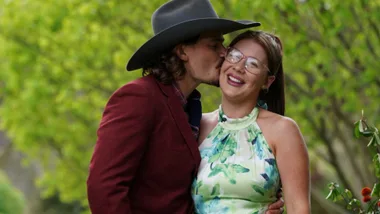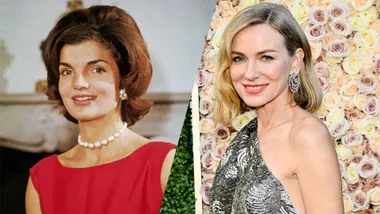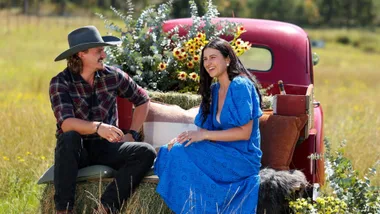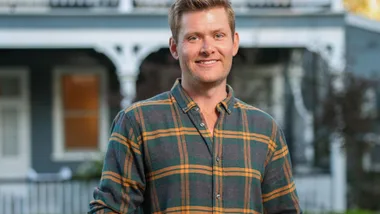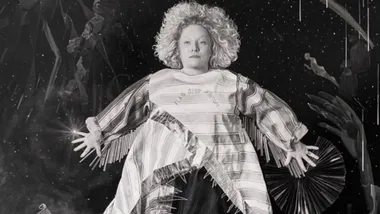Beaming, the lithe actress shimmering in a metallic, strapless gown climbs onto the stage to front the clamouring press pack. In one hand she nonchalantly holds her gold strappy heels, in the other her first Emmy Award. Candice Bergen, after slogging away for decades in poorly reviewed roles, having struggled to find fame in her own right, had finally earnt the respect of Hollywood as the eponymous television reporter and recovering alcoholic in Murphy Brown.
On that night in September 1989, grinning broadly, the actress admitted that “this is the kind of work and comedy I’ve wanted to do for 20 years and I’ve never gotten a chance to do”.
At 43, success had been a long time coming for Bergen. A former model and photojournalist, she was known more for her regal beauty and cool aloofness than her acting talent. Nicknamed “the Ice Queen”, her earliest on-screen roles had received fairly dismal reviews. But on November 14, 1988, the first-ever episode of Murphy Brown aired. Feisty, sarcastic and ambitious, Bergen’s eponymous character defined the show, which would run for a decade and garner her five Emmys (after her fifth win she declined future nominations for the role). It made her the undeniable “Queen of the Sitcom” with a salary, she claimed, that ranked her as the highest paid actor in TV. But as the daughter of a famous comedian, Bergen had to overcome demons of self-doubt and a fierce rivalry from a most unsuspecting character: a wooden puppet.
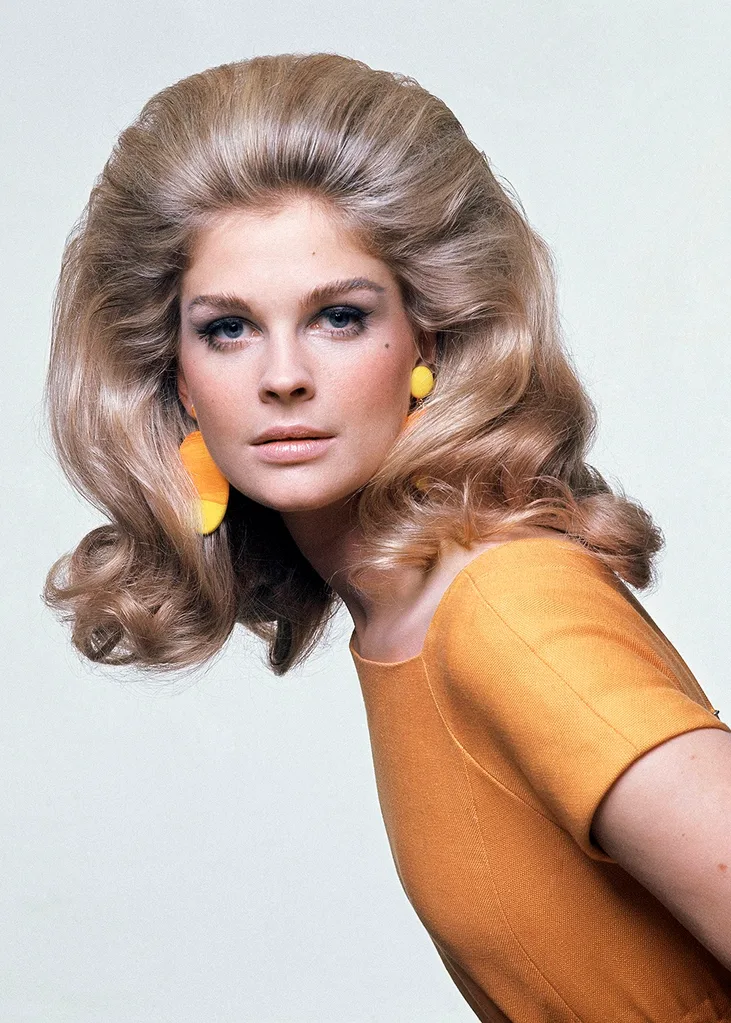
Candice Patricia Bergen was born on May 9, 1946, and grew up in the gilded confines of Beverly Hills with her mother, Frances, a model, and her father, Edgar, a famous comedian and ventriloquist. Her birth was announced in the celebrity press as “Charlie McCarthy has a little sister”, a reference to her father’s star dummy, who had his own fully furnished bedroom (real-life brother Kris arrived 15 years later). Bergen’s father would often sit her on his knee, along with Charlie, and gently squeeze her neck as a signal for her to move her mouth. “Sometimes I have to give myself credit for being a functional human being,” says Bergen, who grew up among Hollywood’s rich and famous, including childhood friend Liza Minnelli and “Uncle” Walt Disney.
At six, she began appearing on her father’s radio show. Aged 13, she was nearly seduced in a car by a screen idol (whose name remains anonymous in her 1984 memoir, Knock Wood). When her parents visited her at her Swiss boarding school in Gstaad, Bergen, not yet 15, coolly lit a cigarette and announced: “Let’s go down to the bar and have a Bloody Mary. The Burtons are here, and the Aga Khan is coming.” On returning to America, she enrolled at the University of Pennsylvania in Philadelphia, but was thrown out at the end of her sophomore year for flunking classes.
By then she had signed with Ford Models. Film director Sidney Lumet spotted her posing with a leopard-skin pillow in a Revlon ad and cast her as a lesbian in his controversial 1966 movie The Group, but her first foray on the screen didn’t impress critics. “As an actress, her only flair is in her nostrils,” quipped one. Reviewers were left equally bemused by her performance in 1970’s The Adventurers: “Bergen performs as though clubbed over the head … the dialogue may simply have stunned her,” wrote The New York Times.
Undeterred, Bergen stumbled through lacklustre roles because “any qualms I had about inferior or tasteless scripts were temporarily assuaged by lucrative salaries”. But she was subjected to crude sexism on set. On one film, co-star Oliver Reed wouldn’t speak to her off-camera after she refused to sleep with him. For another, studio executives signed off the publicity ad with: “Great – just make Bergen’s tits bigger and the rifles longer and you got it.”
Her love life was equally rocky. In her 20s, she had a two-year relationship with Terry Melcher, the record producer son of legendary singer and actress Doris Day. They lived together at his Beverly Hills house on Cielo Drive, until Melcher suddenly announced they were moving to Malibu. Several months later, in August 1969, their former love nest became a murder scene when followers of cult leader Charles Manson butchered the new resident – Sharon Tate, the wife of director Roman Polanski – and four of her friends. Chillingly, it transpired that the murders may have been a “message” to Melcher, who’d reneged on a record deal with Manson. Bergen and Melcher separated soon after.
By now Bergen was supplementing her modelling and film work with photo-journalism, a passion she’d had since university. Throughout the 1970s, she regularly worked for Esquire and Cosmopolitan, travelling around the world, photographing subjects as diverse as the Ku Klux Klan and Kenya’s Maasai.
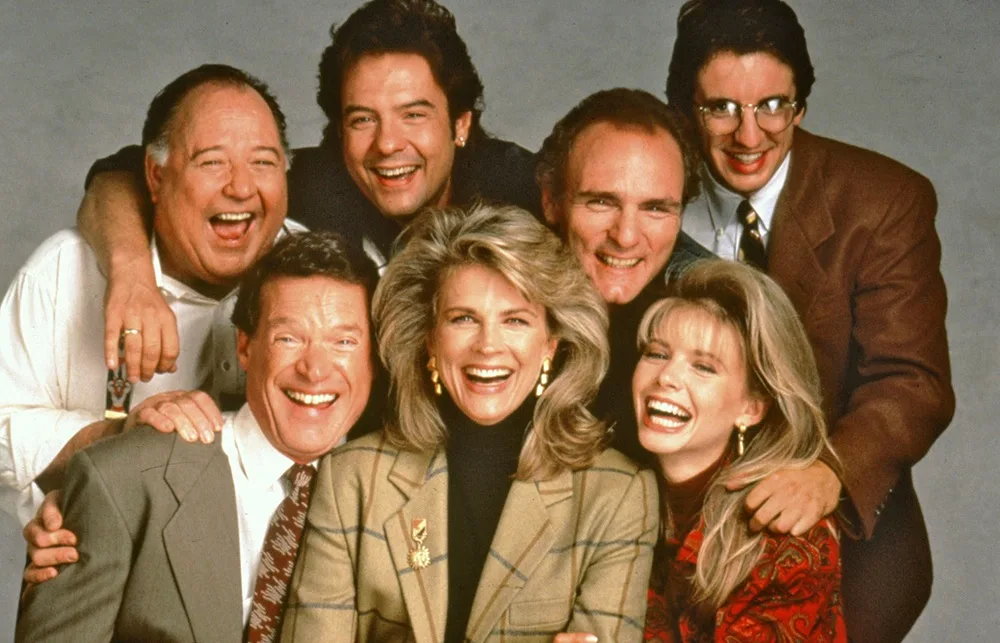
In October 1975, Bergen, aged 29, became one of the first guest hosts on a new late-night, live television sketch show, NBC’s Saturday Night (which later became known as Saturday Night Live). She remembers it as “like being shot out of a cannon … it was the purest, most exhilarating serum of terror”, but the show’s cast members – Chevy Chase, John Belushi and Dan Aykroyd – adored her, with one insider saying they ran around after her “like puppy dogs”.
Three years later, Bergen’s father died of kidney disease. In his will, he left nothing to his only daughter, but bequeathed $10,000 to dummy Charlie McCarthy to fund ventriloquist performances. Ironically, the end of Edgar’s life spelled a new one for Bergen, who said: “His death left a space for me. I always felt my fame was ill-gotten, sort of borrowed from his, and that perhaps I tried to keep some kind of rein on it.”
The following year she unleashed it, giving a hilarious performance in big-screen comedy Starting Over as a vocally challenged singer trying to woo back her ex-husband. “She seems finally to have understood what people have always resented in her – the glacé perfection – and she parodies herself mercilessly,” enthused New York magazine of Bergen’s performance, which earnt her an Oscar nomination for Best Actress in a Supporting Role. Another comic turn in 1981’s Rich And Famous prompted Time magazine to declare “this once bland beauty has become one of the screen’s most arresting comedians”.
Just as she was finding her footing as an actress, Bergen also found love. On September 27, 1980, she married French film director Louis Malle, six months after their first date. “I had sort of given up [on] finding anybody I wanted to marry, so when you make a connection at that point, you move on it,” said Bergen, who gave birth to daughter Chloe – currently the social editor at American Vogue – five years later. Bergen spent most of the 1980s playing the role of wife and mother, then in 1988 came her big break.
Says Murphy Brown’s creator, Diane English, “she wasn’t on any list of actresses for the part. But as soon as her name was mentioned it was like a light bulb went off.” English championed Bergen despite CBS executives wanting the younger Heather Locklear for the role. “At the time, I was such a gamble,” admitted Bergen. “People simply couldn’t understand that I had been cast.”
Five Emmys – and a host of adoring fans – later, Bergen proved that her once glacial image had well and truly thawed. “I had no idea she was so funny or so much fun to be around,” recalled co-star Joe Regalbuto, who played colleague Frank Fontana and was the butt of many of Bergen’s practical jokes. “She’s like a little kid running around, putting gum on your chair or stickers on your back.”
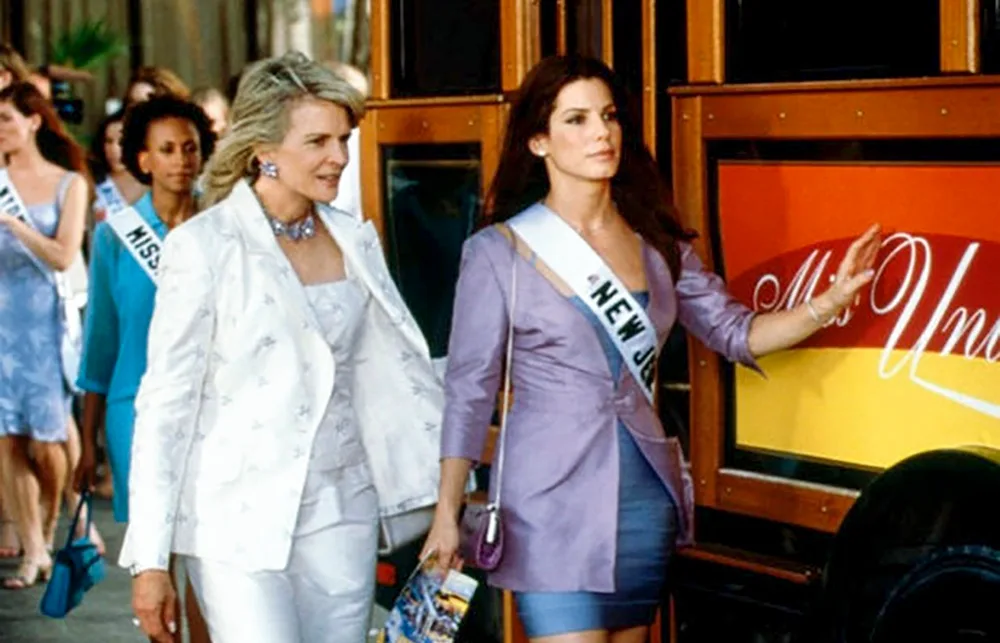
Murphy Brown wasn’t just a hit – it pushed social boundaries, tackling subjects like alcoholism, divorce and breast cancer. Most famously, Murphy’s decision to have a child as a single mother erupted into a national controversy during the 1992 presidential campaign, when then-Vice President Dan Quayle lambasted the character during a speech on family values, saying she was “mocking the importance of fathers by bearing a child alone”. The ensuing brouhaha dominated headlines and became a major issue in the election lead-up.
While Bergen and Chloe resided in Los Angeles, where Murphy Brown was filmed, husband Malle split his time between New York and Paris, due to work commitments. The family spent time together whenever their schedules allowed. “It was very hard on our marriage,” recalled Bergen. Then, in 1994, Malle was diagnosed with progressive multifocal leukoencephalopathy, a brain disease that quickly robbed him of his speech and ability to walk. He joined the family in LA where he received specialist nursing care while Bergen continued to work. “It kept me sane,” said the actress, who admitted she took Prozac to cope after Malle’s death in November 1995.
Two-and-a-half years later, on May 18, 1998, the Murphy Brown finale aired. But as that door closed, another opened: Bergen met New York philanthropist Marshall Rose, whom she married in 2000. They shared a grand Fifth Avenue apartment with their dogs, Jerry and Phyllis. By now in her 50s, Bergen interspersed roles in films, such as Miss Congeniality (“She’s salty, down to earth, a bitch, in the best sense of the word,” said co-star Sandra Bullock), with regular television work: Will & Grace, Sex And The City and Boston Legal, for which she received two Emmy nominations.
In 2006, aged 60, Bergen suffered a minor stroke, leaving her with memory problems. Still, she carried on working, this time on Broadway in 2012’s The Best Man and 2014’s Love Letters. Asked by a reporter if she needed to work, Bergen replied: “No. I’m blessed. I’m very well set. But I need to work so that I don’t get periodically nuts.”
Still known for cutting an inordinately elegant figure on the red carpet, she’s admitted to having cosmetic surgery on her eyes and neck, but says she no longer cares about her weight. “Let me just come right out and say it: I am fat,” she wrote in her 2015 memoir, A Fine Romance. “Dieting is outside my purview – I am a champion eater.”
In the memoir, Bergen gives an account of the transitory nature of fame. Not long after Murphy Brown ended, she recalls standing outside a restaurant with Warren Beatty and Annette Bening. “The paparazzi were waiting en masse. I braced myself. They pounced on Warren and Annette, but they ignored me completely. After they left, it was just me standing there like a schmuck with the paparazzi, waiting for my car.”
But Bergen has always captured people’s attention where it matters: on the screen. Almost 30 years since Murphy Brown first aired, she has continued to work consistently, including in a Warren Beatty-directed biopic about Howard Hughes due out later this year. “At an age when most actresses are being phased out,” she has said. “I am being phased in – with a vengeance.”
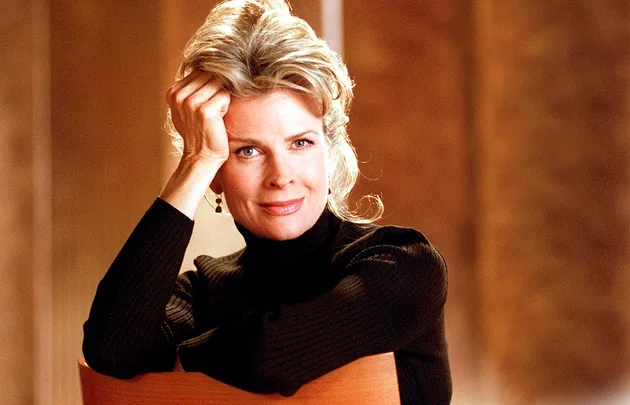 Getty Images
Getty Images
